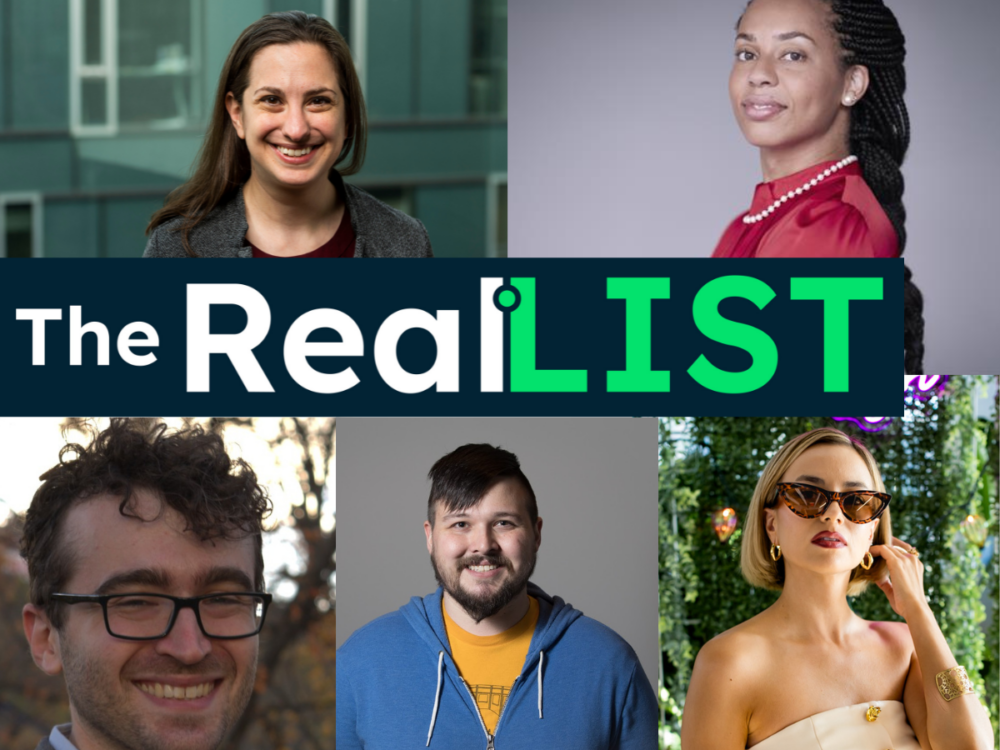Since 2021, Technical.ly marks the fall by highlighting rising stars in Pittsburgh’s tech industry — the RealLIST Engineers, aka the influential technologists in our community who show impressive technical aptitude, community leadership and collaborative practices.
Through emails and a public nomination form, we beseech the people who’d be the most in the know to help us understand which of their peers in software is doing big things, as well as sharing their expertise with others. Check out our 2022 and 2021 lists, too.
After months of preparation and weeks of anticipation (for us), the moment has finally come. Below are your 2023 Pittsburgh RealLIST Engineers. We worked hard to compile a list of people whose accomplishments made the Steel City take notice, or who are doing things that benefit people inside and outside Pittsburgh.

Henny Admoni, assistant professor, Carnegie Mellon University’s Robotics Institute

Carnegie Mellon University professor Henny Admoni. (Courtesy Carnegie Mellon University)
Admoni serves as the lead for the Human And Robot Partners (HARP) Lab, which studies how to develop robots that can assist humans in everyday life.
Through the years, Henny’s research has been supported by federal agencies such as the US National Science Foundation, the US Office of Naval Research, the Paralyzed Veterans of America Foundation, and the Sony Corporation. You can find her work in NPR’s Science Friday, Voice of America News, and our very own WESA radio. Catch her answering Twitter’s questions about robots’ world domination for Wired, too.
Paola Buitrago, director of AI and big data, Pittsburgh Supercomputing Center
Buitrago runs the Artificial Intelligence and Big Data group at the Pittsburgh Supercomputing Center, the computational research center affiliated with both CMU and University of Pittsburgh. The group is responsible for advancing and supporting the convergence of high-performance computing, AI and big data for open science.
Buitrago oversees projects on AI research, and throughout her career, she’s completed academic undergraduate and graduate studies in machine learning, chemical engineering, and systems and computing engineering.
Max Chis, software engineer, Westinghouse Electric Company
Chis is a software engineer by day and the organizer of Code for Pittsburgh by night. Since 2019 Chis has assisted the group in projects such as developing a map of Pittsburgh food access areas to benefit Pittsburgh’s food insecure residents. Additionally, Chis has developed web scrapers to acquire information about local government meetings.
“Code for Pittsburgh is something that is very intentionally designed to be a collective project,” Chis told Technical.ly earlier this year. “I am technically the leader. But one thing I really try to emphasize is that it is something where people can get out of it what they put into it, people are able to start their own projects, and I think that gives it a lot of potential because it allows people to really come in and cultivate their own skills and learn things with a group of like-minded people, and potentially develop something that can be very useful for them.”
Wayne Dennis Jr., director of privacy product, Meta
Dennis has been the director of privacy product at Meta since 2022 and comes from the world of cybersecurity. In between his professional responsibilities, Dennis has also served as the chair of the SG100 Foundation, a volunteer for GCTC SC3 Smart Cities, a research staff member for the Cloud Security Alliance, and technical director for the National Society of Black Engineers. In the summer of 2023, he became a cybersecurity fellow at the Bipartisan Policy Center.
“I’m excited to bring my technical expertise to the table and help shape policies that enhance our nation’s security and resilience,” Dennis said in an announcement about the fellowship.
Alison Falk, founder and executive director, Women In Tech PGH

Women in Tech PGH founder Alison Falk. (Courtesy South Breeze Photography/Elisa Cevallos)
Falk’s WITPGH is an organization that advocates for women seeking to build a career in tech. Her full-time position is as a senior product manager for VMware Carbon Black, but when the former UI developer isn’t on the job, she’s probably building up one of her own projects.
Falk is also a public speaker who has advocated for apprenticeships in a panel discussion during Xchange Innovation Week, where she shared how an unsatisfying professional experience and support from her mentor led to a needed career change. Now, Falk helps others through WITPGH.
Andrew Gish-Johnson, security operations manager, Carnegie Mellon University
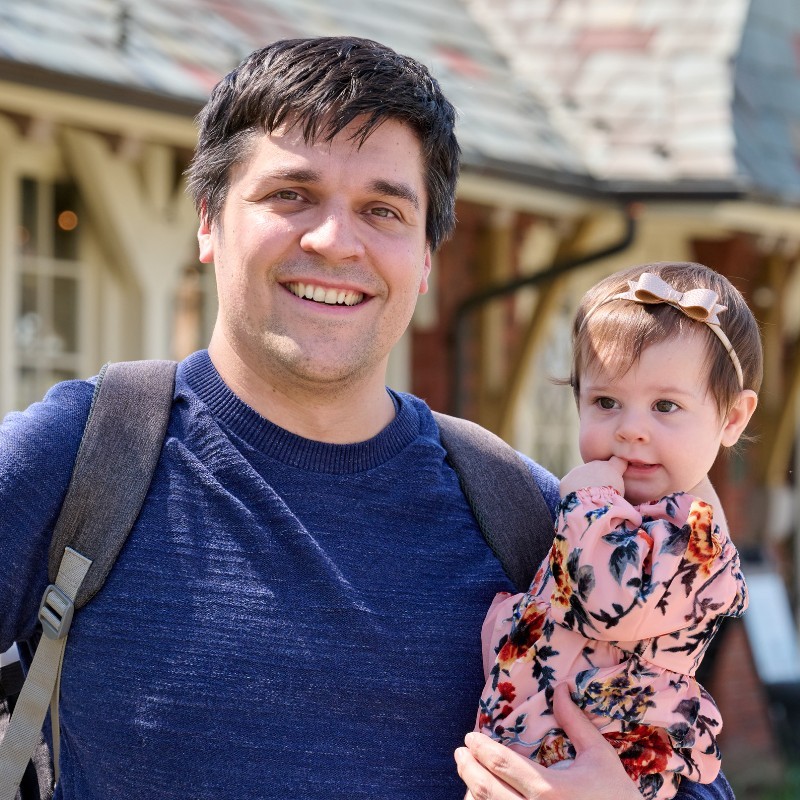
BSidesPGH organizer Andrew Gish-Johnson. (Courtesy Carnegie Mellon University)
When he’s not working in security tech at CMU, Gish-Johnson is one of BSidesPGH security conference’s longtime organizers. In 2011, Gish-Johnson helped to launch the once-modest gathering, which now attracts as many as 800 attendees during its annual gathering.
“The networking aspect of the event is very, very critical to allow people to network to find better jobs,” Gish-Johnson told Technical.ly ahead of the 2023 edition. “I pitch it like, ‘Is there something you want to tell people about that you’re passionate about, security related? Or are you disgruntled about your job and you want to find a better one?’”
Patrick Harrison, independent AI consultant, Data Theoretic
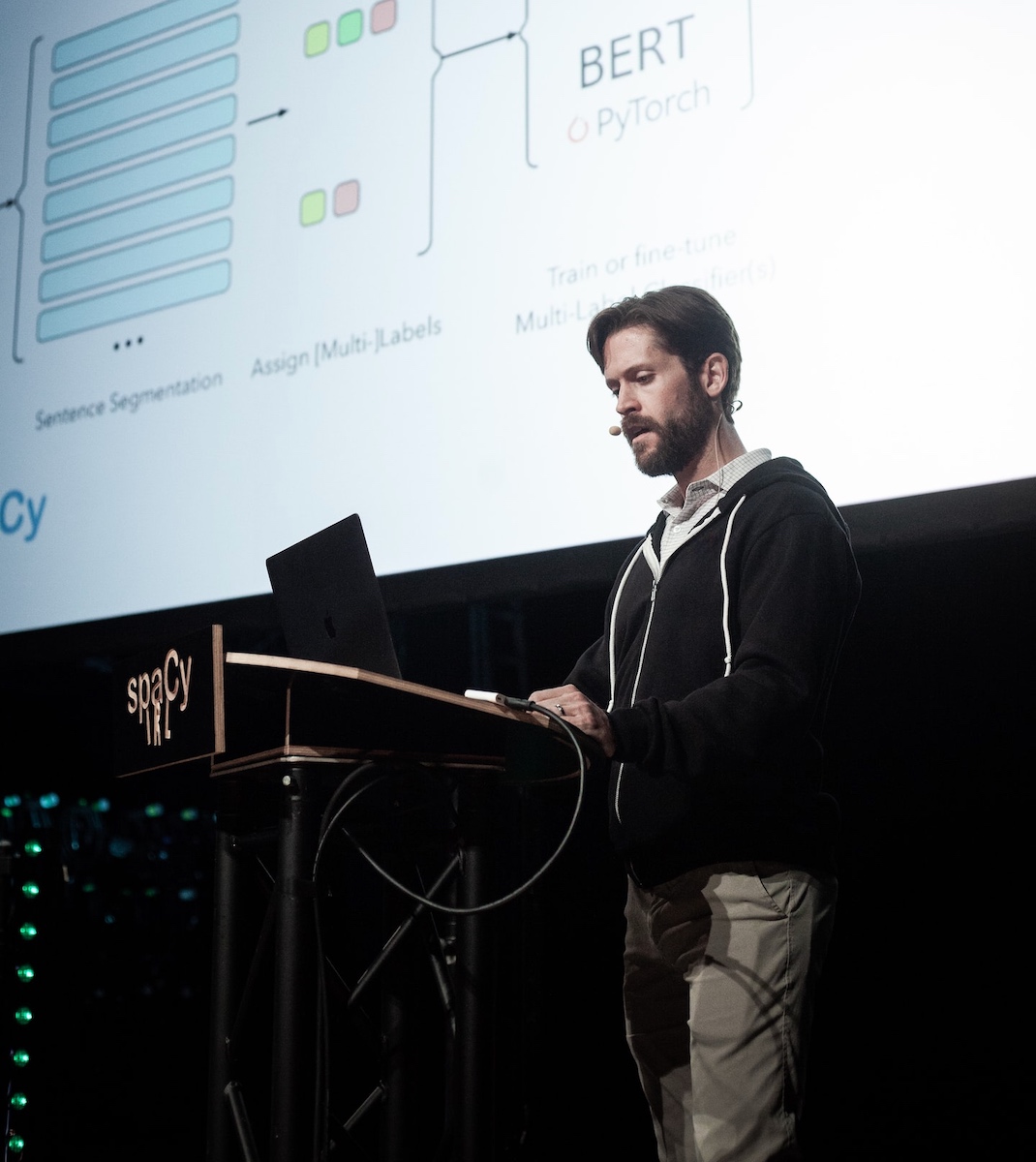
Patrick Harrison. (Courtesy Patrick Harrison)
Harrison is an independent AI consultant, researcher and educator at Data Theoretic, a company he owns. Before that, he made a name for himself in the world of artificial intelligence working as a director of artificial intelligence engineering at S&P Global and a data scientist at SNL Financial.
Now, Harrison splits his time identifying AI opportunities for companies and as a volunteer co-organizer for PyData Pittsburgh. He also served as one of the founding organizers of the Applied Machine Learning Conference in Charlottesville, Virginia, and previously taught data science at the University of Virginia.
Wole Idowu, cofounder of Toyz Electronics
Idowu is a software engineer who graduated as a teen from Carnegie Mellon University with degrees in electrical and computer engineering. He cofounded Toyz Electronics, which gamifies STEM to draw diverse students into tech, with his father, where he acts as the chief technology officer. Additionally, Idowu has occupied positions such as software engineering intern for Madden NFL and associate software engineer for Capital One.
Idowu has secured awards such as the Intel #HackHarassment Ambassador and Grant Winner, being named a 20 under 20 Thiel Fellow Finalist in 2012, and being a finalist in the MIT Solve Finalists For Anti Racist Technology competition through Toyz Electronics’ participation.
Vanessa Jameson, director of engineering, Duolingo
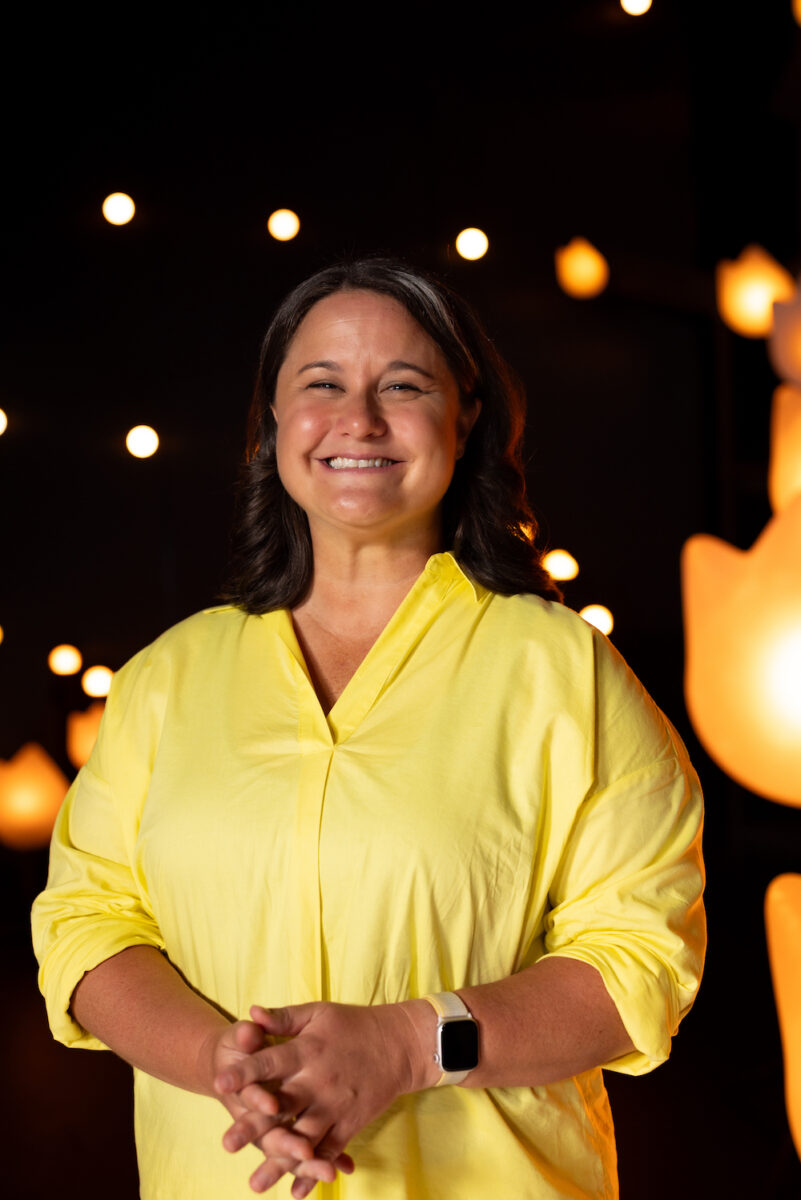
Vanessa Jameson. (Courtesy Duolingo)
Jameson is responsible for overseeing the company’s engineering for new initiatives as well as emerging products. That includes leading the development of Duolingo’s new music course, which will be formally announced at Duocon 2023.
Prior to her tenure at the edtech company, Jameson was a senior software engineer at Google, a navigation system engineer at CMU’s Robotics Factory and a software engineer at General Dynamics Robotic Systems.
Katrina Knight, assistant professor of bioengineering, University of Pittsburgh

University of Pittsburgh assistant professor of bioengineering Katrina Knight. (Courtesy University of Pittsburgh)
Knight runs the Knight Laboratory, which is dedicated to improving the lives of women with pelvic floor disorders by combining biology principles with engineering skills, such as computational modeling and device development.
Through the years, Knight has promoted diversity in STEM and advocated for enhanced access to STEM education. Recently Knight has taken on the role as director of Camp BioE, where she’s piloting an initiative called Jumpstart CampBioE, which is geared toward getting more elementary school children interested in STEM.
Sarah Peasley, lead software developer
Prior to her current role at a Butler County manufacturing company, Peasley has held titles including staff automation engineer, test engineer and electrical engineer across technical industries. When Peasley’s not busy with her full-time work, she can be found acting as a dedicated mentor for FIRST Robotics teams as well as a member of the Code & Supply community. This technologist also served in the US Navy in the early 2000s.
Justin Reese, founder, Code & Supply
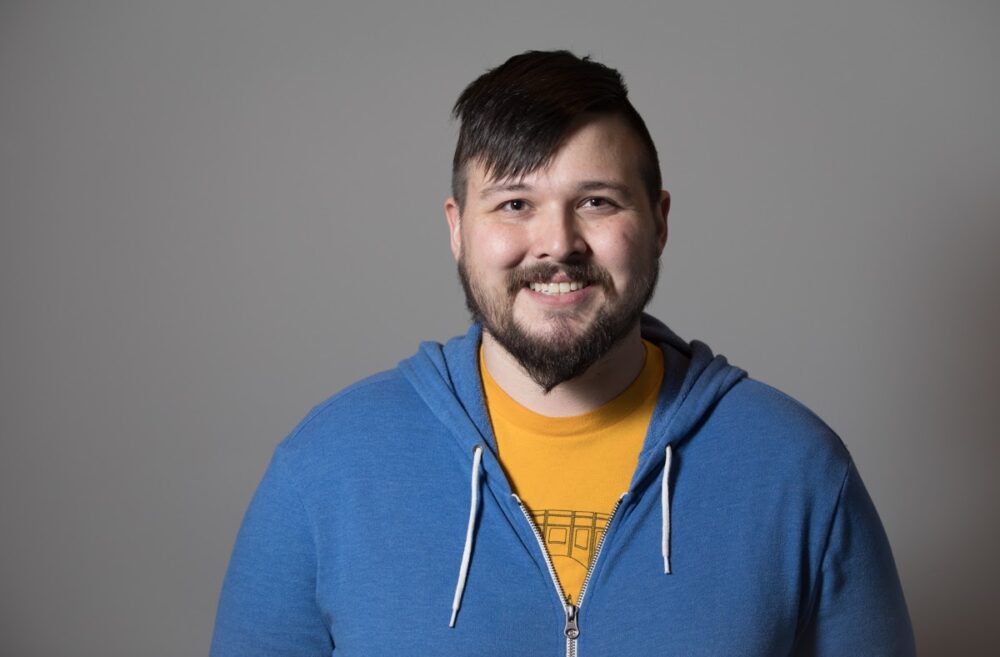
Code & Supply founder Justin Reese. (Courtesy Justin Reese)
Reese is a software engineer who over the years has lent his services to a variety of tech companies and has served on the advisory board of the Western Pennsylvania Regional Data Center.
What Reese is likely most known for is founding Code & Supply, a volunteer-driven community made up of thousands of software professionals. The group is celebrating its 10th birthday this year, and in addition to its reputation as a community for software engineers, the group has gained attention throughout the region for hosting conferences such as Abstractions and mental health-focused Heartifacts, which have seen as many as 2,500 attendees.
Yaser Sheikh, VP of research, Meta
Sheikh is a man who wears multiple hats. When he’s not contributing to the social network’s VR-focused Pittsburgh office, where he has served as director of Facebook Reality Labs since 2018, he’s acting as an associate professor at CMU’s Robotics Institute. His work has been noted in media outlets such as The New York Times, The Verge, Popular Science, BBC, MSNBC, New Scientist, slashdot and WIRED.
Seth Vargo, software engineer, Google
When Vargo, who calls himself “passionate about reducing inequality in technology and making information more accessible,” isn’t working at the Big Tech giant, he can be found writing books about configuration management such as “Learning Chef: A Guide to Configuration Management and Automation.” He was previously an early employee at Hashicorp who “built tools that are products worth tens of millions of dollars in revenue,” per his nominator.
Alex Zharichenko, software engineer II, Aurora
By day, Zharichenko works as a software engineer focused on autonomous driving data at the Pittsburgh company. He can also be found pursuing his masters in computer science and contributing to Code & Supply’s Compensation Survey, building much of the project’s underlying platform, per his nominator.
Zharichenko previously interned at Pittsburgh institutions such as CMU’s Software Engineering Institute, Uber and Highmark Health.
Atiya Irvin-Mitchell is a 2022-2024 corps member for Report for America, an initiative of The Groundtruth Project that pairs young journalists with local newsrooms. This position is supported by the Heinz Endowments.Before you go...
Please consider supporting Technical.ly to keep our independent journalism strong. Unlike most business-focused media outlets, we don’t have a paywall. Instead, we count on your personal and organizational support.
3 ways to support our work:- Contribute to the Journalism Fund. Charitable giving ensures our information remains free and accessible for residents to discover workforce programs and entrepreneurship pathways. This includes philanthropic grants and individual tax-deductible donations from readers like you.
- Use our Preferred Partners. Our directory of vetted providers offers high-quality recommendations for services our readers need, and each referral supports our journalism.
- Use our services. If you need entrepreneurs and tech leaders to buy your services, are seeking technologists to hire or want more professionals to know about your ecosystem, Technical.ly has the biggest and most engaged audience in the mid-Atlantic. We help companies tell their stories and answer big questions to meet and serve our community.
Join our growing Slack community
Join 5,000 tech professionals and entrepreneurs in our community Slack today!

The person charged in the UnitedHealthcare CEO shooting had a ton of tech connections

From rejection to innovation: How I built a tool to beat AI hiring algorithms at their own game

Where are the country’s most vibrant tech and startup communities?



